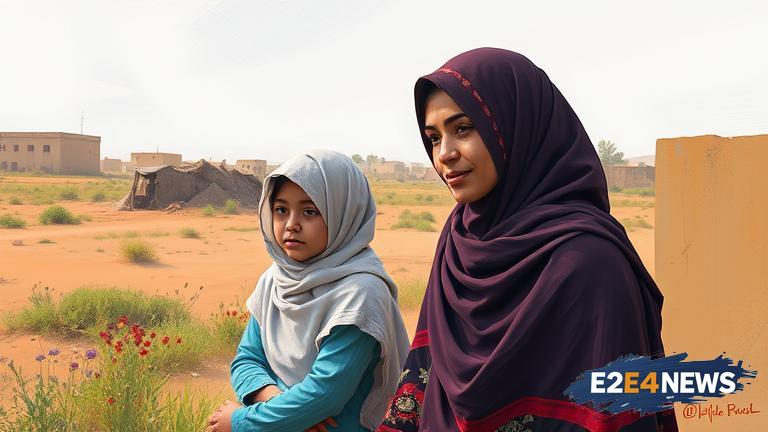In a groundbreaking movement, Muslim women are rising to challenge traditional norms and promote girls’ health and autonomy. This shift is being driven by a growing recognition of the importance of education, healthcare, and equality for girls and women. Despite facing numerous challenges, including societal pressure and limited access to resources, these women are determined to create a better future for themselves and their communities. By sharing their stories and experiences, they are helping to break down barriers and challenge stereotypes. The hijab, a traditional headscarf worn by many Muslim women, has become a symbol of this movement, representing both the restrictions and the empowerment of women. As Muslim women continue to push for change, they are inspiring a new generation of girls to take control of their own lives and make informed choices about their health, education, and careers. This movement is not limited to any one country or region, but is a global phenomenon, with women from diverse backgrounds and cultures coming together to support and uplift each other. In many Muslim-majority countries, women are working to improve access to healthcare, particularly reproductive health services, and to promote education and economic opportunities. They are also challenging traditional norms and practices that perpetuate inequality and discrimination, such as child marriage and female genital mutilation. Through their efforts, these women are helping to create a more just and equitable society, where girls and women have the opportunity to thrive and reach their full potential. The impact of this movement is being felt not only in Muslim communities, but also in the wider world, as it challenges stereotypes and promotes greater understanding and respect for diversity. As the world becomes increasingly interconnected, it is more important than ever that we support and empower women and girls, regardless of their background or culture. By doing so, we can help to create a brighter future for all, where everyone has the opportunity to live a healthy, happy, and fulfilling life. The role of education in this movement cannot be overstated, as it provides girls and women with the knowledge and skills they need to make informed choices and take control of their lives. Furthermore, education helps to challenge traditional norms and promote greater understanding and respect for diversity. In addition to education, access to healthcare is also critical, particularly reproductive health services, which are essential for the health and wellbeing of girls and women. By promoting education and healthcare, Muslim women are helping to create a more just and equitable society, where everyone has the opportunity to thrive. This movement is a testament to the power of women’s empowerment and the importance of promoting equality and justice for all. As we move forward, it is essential that we continue to support and uplift Muslim women, and to recognize the critical role they play in promoting positive change. By working together, we can help to create a brighter future for all, where everyone has the opportunity to live a healthy, happy, and fulfilling life. The future of this movement looks bright, with a new generation of girls and women emerging as leaders and change-makers. These young women are determined to create a better world, where everyone has the opportunity to thrive and reach their full potential. As they continue to push for change, they are inspiring others to join them, creating a ripple effect of positive change that will be felt for generations to come. In conclusion, the movement of Muslim women rising to defend girls’ health and choices is a powerful and inspiring phenomenon, which has the potential to create a more just and equitable society for all. By promoting education, healthcare, and equality, these women are helping to break down barriers and challenge traditional norms, creating a brighter future for themselves and their communities.





